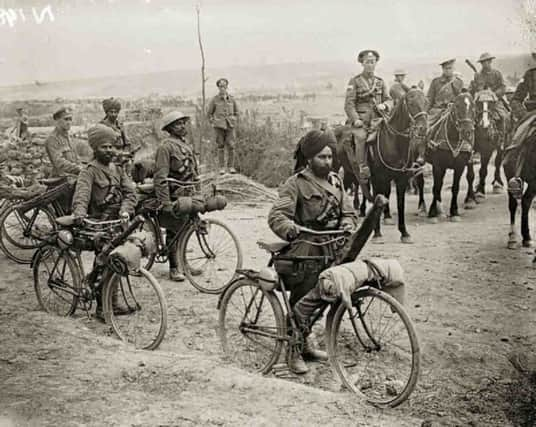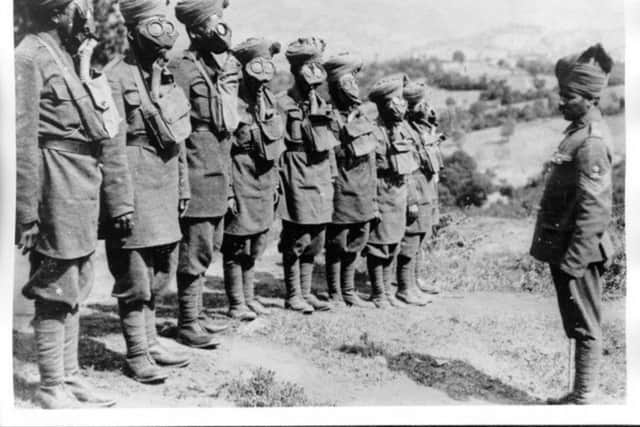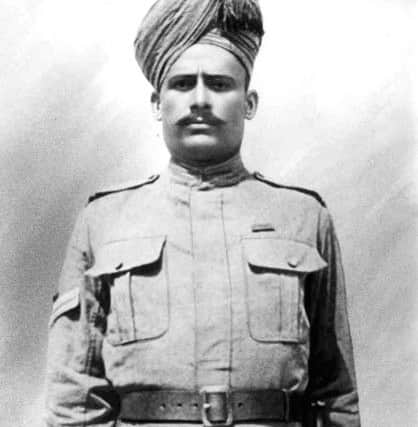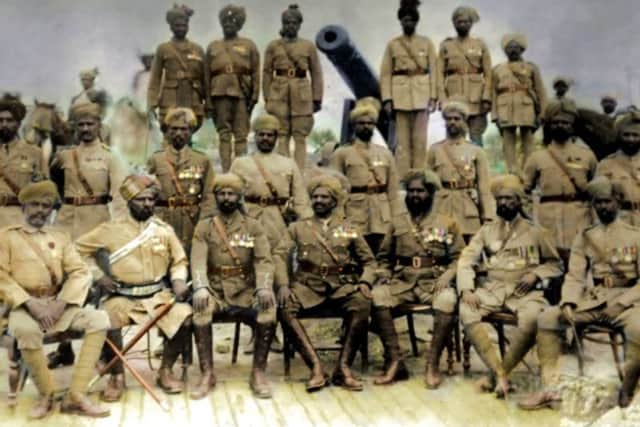FEATURE: Remembering the '˜forgotten soldiers' of World War One


The country of India awoke to celebrate freedom from British rule on the morning of August 15, 1947. The new Muslim homeland of Pakistan was also created at the same time. Both countries turned 70 this week.
Together, they are two nations whose people came during the 1950s and 1960s to settle in the local mill towns of Dewsbury, Batley and Heckmondwike.
Advertisement
Hide AdAdvertisement
Hide AdOver the next four weeks we will be running a series of features on Asian nostalgia.


The First World War broke out on August 4, 1914 when Britain, along with her huge empire, declared war on Germany and the Austro-Hungarian Empire.
Over a million men from the Indian sub-continent instantly volunteered to fight for “King and Country”.
They were all enlisted into the British-Indian Army – which at the time became the envy of other colonial powers.
Advertisement
Hide AdAdvertisement
Hide AdThe Indian soldiers fighting on Britain’s side were fiercely loyal to the crown and did their duty with utmost gallantry.


The vast majority of men were recruited from rural villages in the Indian provinces of Punjab, Kashmir, and from the North-West Frontier region – in what was then the huge country of ‘British-India’.
Most were Muslims or Sikhs.
Besides fighting on the Western Front in France at famous campaigns such as the Somme, soldiers from the British-Indian Army also fought against Kaiser Wilhelm’s forces in German East-Africa.
Indian divisions were also sent to Egypt and Gallipoli, and nearly 700,000 men served in Mesopotamia (now present day Iraq).


Advertisement
Hide AdAdvertisement
Hide AdA total of 74,187 Indian soldiers died in the First World War. Another 62,000 were fatally wounded.
At least 17 British-Indian Army soldiers earned the Victoria Cross medal for exceptional bravery.
For the men who served in it, the British-Indian Army became an important part of their cultural heritage and way of life.
In Indian and Pakistani culture, as well as amongst local Mosque Imams, the First World War is known as the “Jhang-E-Azeem”. This is the name given in the Urdu language – and in English means the “Great War”.


Advertisement
Hide AdAdvertisement
Hide AdAs the war ended in 1918, most of the men from the British-Indian Army were discharged from service.
Yet their names stayed on record with the British authorities in case they were needed again – perhaps in the future – but this time to work in northern England’s textile mills.
It was these brave men from the First World War who are also the great grandparents of many Muslim families living at the moment in Heckmondwike, Batley and Dewsbury.
The Great War left a lasting impact on British-India.
In the long term, it would lead to the migration, almost five decades later, of another generation that arrived into our local area during the post-war period – and to indeed help fill the severe labour shortages inside our local mills.
Part 2 next week.